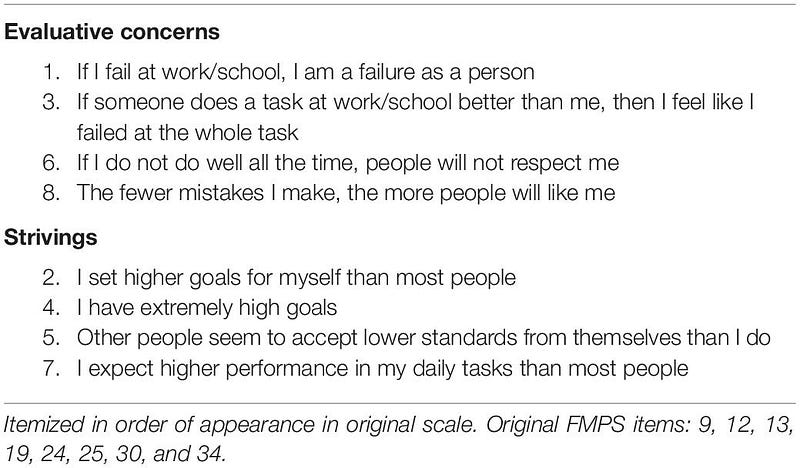How Perfectionism Drove Me to a Life of Mediocrity
Written on
Understanding Perfectionism's Roots
The irony of my situation isn't lost on me—perfectionism led me to a state of mediocrity.

Photo by brother’s photo
My upbringing was far from privileged. My parents were mostly focused on making ends meet, and education was viewed as the key to breaking the cycle of poverty that enveloped families like ours. Despite financial hardships, they prioritized my education, striving to help me become an exemplary student.
With no resources for kindergarten, my mother took it upon herself to teach me reading and writing. I can still recall her stern demeanor. Every mistake I made while practicing letters was met with strict consequences. While my peers enjoyed playtime, I was engrossed in lessons.
From an early age, I understood that pleasing my mother meant mastering her teachings to perfection. My motivation was fueled by a desire to avoid punishment and garner her approval rather than a genuine love of learning. This extended beyond academics; my singing lessons were similarly marked by high expectations.
This relentless pursuit of perfection instilled in me a profound fear of failure. My mother's strict standards extended to every aspect of my life, and any misstep was met with severe repercussions. Consequently, I became conditioned to aim for flawlessness in everything I did, fearing that any error would lead to disappointment.
The Psychological Effects of Perfectionism

Photo by Soudha J.
A study by Norwegian researchers categorized perfectionists into two groups: striving perfectionists, who are motivated by intrinsic goals, and evaluative perfectionists, who seek external validation. The findings revealed that those driven by evaluative concerns were more vulnerable to anxiety and depression than their striving counterparts.

Image of Frost Multidimensional Perfectionism Scale — Brief (material used in the research) by Frontiers in Psychology
I found myself in the evaluative category, primarily motivated by the desire to earn my mother’s approval. This mindset significantly influenced my achievements. To the outside world, I appeared to be a high achiever—skipping kindergarten, consistently earning honors, and being recognized for my talents.
However, all these accomplishments were primarily for her sake. The fear of disappointing my mother loomed large, and I felt compelled to succeed at any cost. When she left for a job abroad, the pressure to please her eased, and I began to merely meet minimum expectations in my studies. My enthusiasm for singing faded as well, as I no longer felt the drive to practice.
This experience revealed a crucial truth about my perfectionism: my accomplishments were not grounded in a genuine desire to excel but rather in a fear of letting my mother down. Once that fear dissipated, so did my motivation. I coasted through school, achieving just enough to be deemed acceptable.
Even now, in my 30s, I grapple with the fear of failure, which holds me back in both my career and personal endeavors. I find myself hesitating to fully commit to my pursuits, often justifying my shortcomings instead of striving for success. This deeply ingrained fear originates from my childhood and the perfectionist mindset that developed alongside it.
It is important to note that I don’t wish to cast my mother in a negative light. She acted out of a genuine belief that she was doing what was best for me, instilling the values of hard work and education. My purpose in sharing this narrative is to shed light on the dangers of perfectionism and to encourage others to embrace their imperfections.
The Dangers of Perfectionism

Photo by Monstera Production
Perfectionism can be crippling, obstructing us from taking the necessary steps toward genuine success and fulfillment. It often leads us to focus too much on results, causing us to overlook the enjoyment of the process. This shift in focus can transform a potentially enriching journey into a path of mediocrity.
Research corroborates that perfectionism correlates with various negative outcomes. A study published in the Journal of Counseling Psychology indicates that perfectionists experience heightened levels of stress, anxiety, and depression. Furthermore, another study shows that perfectionists are more prone to burnout and less likely to feel job satisfaction. These findings underscore the significant mental health risks associated with perfectionism.
Strategies for Conquering Perfectionism
- Practice Self-Compassion: Dr. Kristin Neff, a leading researcher on self-compassion, advocates for treating ourselves with kindness when we falter. Acknowledging that mistakes are part of the human experience can help mitigate the adverse effects of perfectionism.
- Set Realistic Goals: Perfectionists often establish unattainable objectives, only to feel disheartened when they fall short. By setting achievable goals and celebrating small victories, we can foster confidence and reduce the pressure to be perfect.
- Challenge Perfectionist Thinking: Cognitive-behavioral therapy (CBT) can assist in identifying and reframing perfectionist thoughts. For instance, rather than thinking, “I must be perfect to succeed,” we can shift our mindset to, “I can aim for excellence without needing to be flawless.” This shift can lessen the stress and anxiety tied to perfectionism.
- Seek Support from Others: Sharing our challenges with friends, family, or therapists can provide comfort and new perspectives. Supportive relationships can help challenge perfectionist beliefs and encourage healthier ways of thinking and behaving.
By embracing our imperfections, we open the door to more authentic and fulfilling lives. We learn to take risks, make mistakes, and grow from them, finding joy in the journey rather than fixating solely on the destination.
Now, as I navigate my 30s, I continue to peel back the layers of the perfectionism that has long dictated my efforts. And if you find yourself in the same boat, here’s to us! We can overcome this together!
The first video discusses how fear, not perfectionism itself, can be the underlying issue hindering personal growth.
The second video explores the destructive nature of perfectionism and its impact on relationships and self-worth.